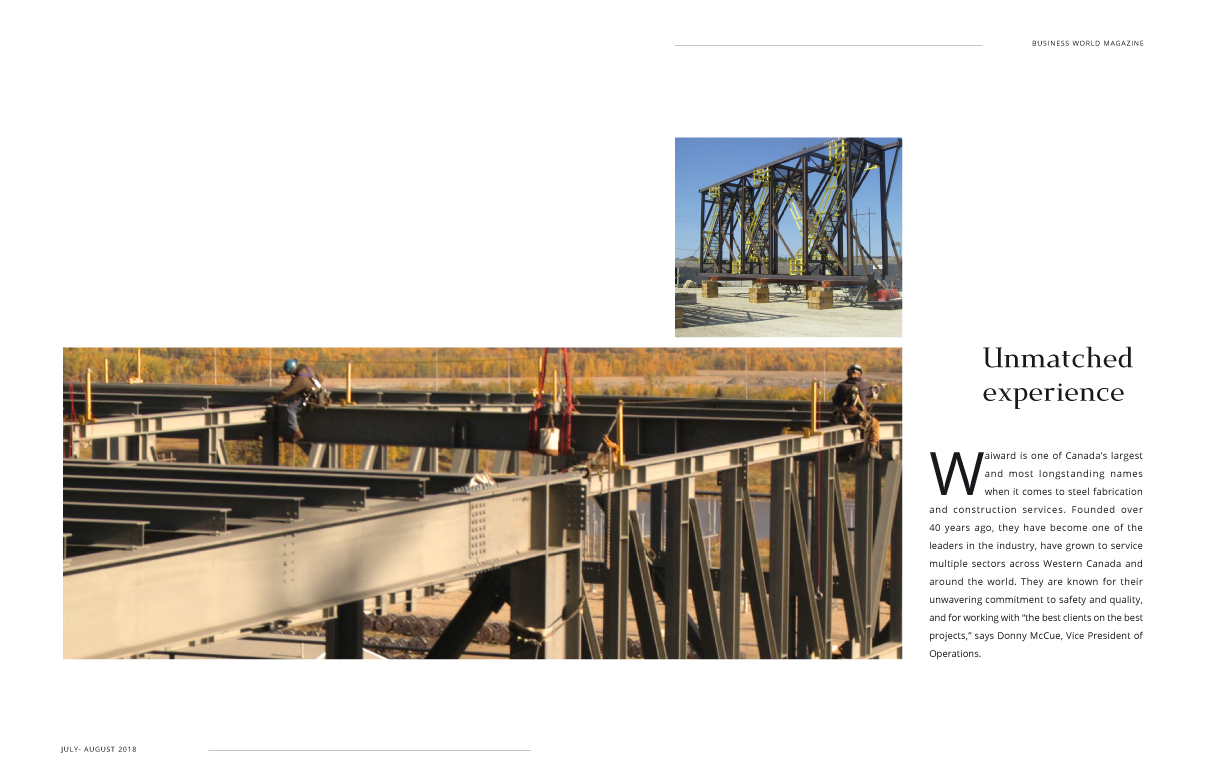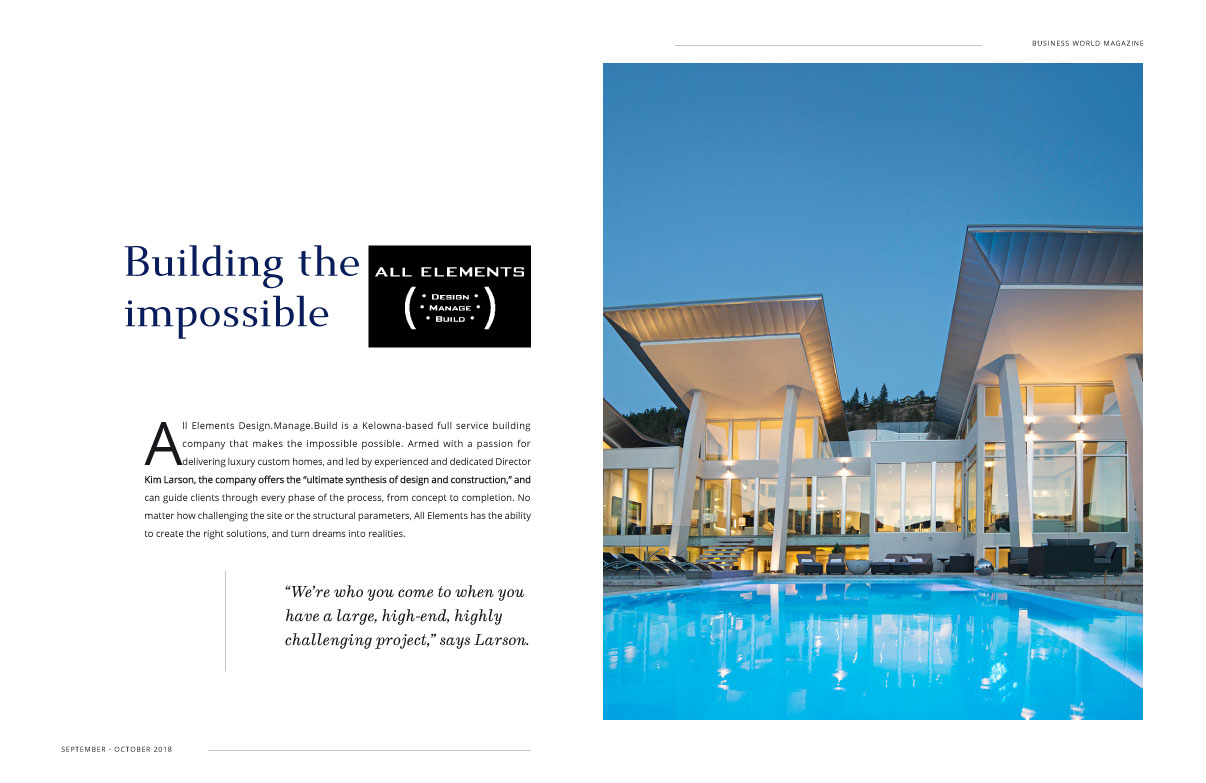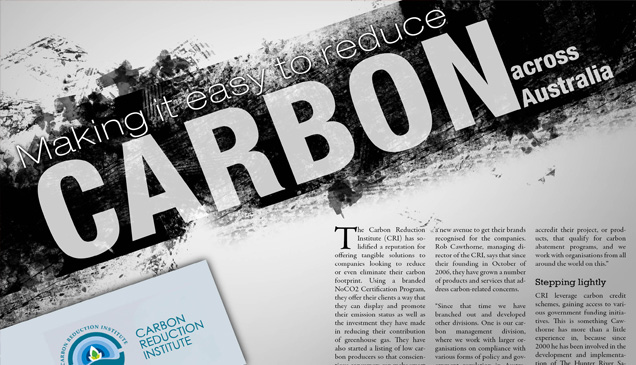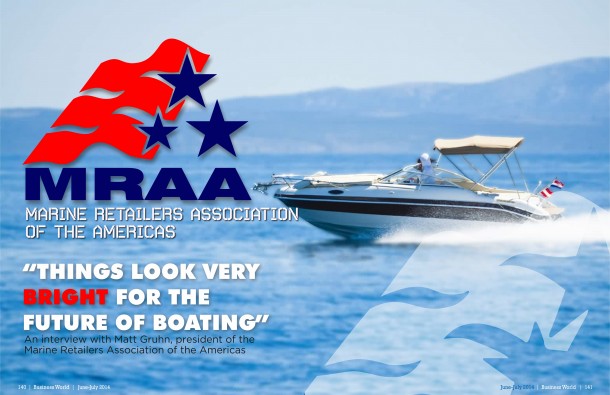
“Things Look Very Bright for the Future of Boatingâ€
An interview with Matt Gruhn, president of the Marine Retailers Association of the Americas
Â
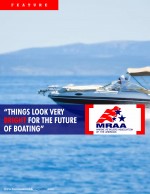
The Marine Retailers Association of the Americas was created by a group of boat and engine dealers in 1972 to represent and to look out for the needs of other dealers and retailers.
 One of its founding members, Phil Keeter, stepped down from the association’s presidency at the end of 2011 to make way for Matt Gruhn, who continues to lead the association today. Gruhn oversees a staff of nineat the headquarters office in Minneapolis, and has steered the association through a period of prodigious membership growth that’s seen a greater-than-200-percent uptick since February 2012.
 It was a refocus on the core mission, Gruhn said, that’s led to the swell in member interest.
 “We have really refocused our energy on what we do on an everyday basis, providing our members with tools and resources and opportunities for growth,†he said.“A lot of that focuses on educational opportunities, helping them learn the secrets of success, the best practices for working (and) extra advice on how to grow, when to grow, where they should grow and really focusing on serving their needs. That’s really been the secret ingredient. We took a book called “Start with Why†and we each read this book,and we’ve refocused our “why,†if you will, to focus on those things. Our job is to help our members grow, so that our industry grows, and we help them grow by providing them those tools, those resources and those educational opportunities. It’s been a very successful formula for us, something that we all know when we come in the morning that that’s what we’re here to do and we focus on it very intently.â€
 Business World caught up with Gruhn recently to discuss the association’s place in the market, what he considers as its main objective and what sorts of things the industry can expect in the future.
BUSINESS WORLD: How many members do you have? Do you know roughly an exact count?
GRUHN: We’ve got about 1,100 or so locations in our member database, which is just over one-third, probably close to one-half of the market.
BUSINESS WORLD: Are there any other organizations out there that are similar to yours? Or competitive to yours?
GRUHN: No, not really. As far as the boat dealers go, and boat and engine retailers, we’re the only national association there. There are, of course, a number of associations serving our industry – we just come at it from the dealers’ standpoint to help them grow. Our members are the part of the industry that interact with the boater every single day, either selling them a boat, servicing their boat, selling them parts or services, or equipment or accessories, or whatever they may need to help them enjoy their time on the water. So, we feel like that’s the critical link in the growth of our industry. If we can help them grow, then the entire industry can grow.
BUSINESS WORLD: Do you have typical members? Is there one sort of entity that pops up most often in terms of your member list?
GRUHN: The large majority of our members are boat and engine dealers, so they’re selling new boats and new engines and new packaged boat/engine combos. That’s our typical member. We have a number of members who are service only, where they would be a service repair shop for boats and engines. We have a number of members that are marine retail locations only, so they sell parts and accessories, for boats and engines. There’s a good mix that way, but a large sample of our members also have marinas, so it’s kind of a direct link between selling a boat and then putting it in the water to get going.
BUSINESS WORLD: I talk to a fair bit of organizations and associations like this one, and a lot of the ones I’ve talked to will say “this is what we do particularly well†– we’re an advocacy organization, we are a networking organization, we educate our members, we have a thing that we plant our flag in the ground and say this is why people find value in us. What is that for you guys?
GRUHN: That’s a really good question. We’ve got a really strong mix of what we do. We have an advocacy position in D.C., which we have a lot of members tell us that they join because of the support we provide them that way. But our big focus really is our educational component. We have a national conference. That national conference has grown from literally 97 people in 2007 to last year, we had over 1,100 people. So it’s grown significantly.
We reinvented that event back in 2008 and really focused on growing it, but then adding new elements to it and so forth, and we ended up with more than1,100 people last year. We’ve had a record number of dealers — our core audience — every year since 2007, and right through the recession and right through all of the difficulty. The recession hit our industry really hard. Our industryactually lost 35 percent of ourdealersduring that stretch. Right through that recession, though, our event continued to grow, continued to bring in more dealers, and we really kind of carved out our place as an entity that can offer dealers first-class educational opportunities.
So we’ve taken that concept, and now we’ve created regional conferences where dealers can come out on a regional basis and get a day’s worth of education at several stops around the country. Last year, we held these events, called Marine Retail University, in cities like Boston, Seattle, Minneapolis, Dallas and Syracuse. And most recently, we launched an online virtual training system, where dealers can access that first-class education 24/7 from the comfort of their desk or their couch, and learn how to sell, how to improve their leadership and customer service, and all kinds of great things.
BUSINESS WORLD: Talk to me about the overall membership – since they come from all different walks of the industry, they may not have a common issue that everybody is worried about, but what is the most often asked about, the most concerned issue that’s facing your membership these days?
GRUHN: The big thing is just the potential increase in regulations in Washington. There’s a lot of ongoing concern about unwarranted regulation, as well as unnecessary increases in taxes.
One of the largest specific issues we are working is related to the increase of ethanol in our fuels. Boats and engines have a difficult time already with 10-percent ethanol in the fuel and the plan, to date, has been for the government to increase the mandate on ethanol to E-15. What most people don’t realize is thatE-15 can have a devastating effect on our engines. They just can’t handle that level of ethanol. Ethanol attracts water and can cause major problems for fuel lines, fuel tanks, and engines. Proponents think E-15 is better for the environment, which it’s not, and that it’s better for these engines and fuel mileage, and it’s just simply not true. Our members are already seeing a lot of damage done to engines with E-10, particularly those that will sit in your garage or storage facility over a winter and that ethanol is allowed to eat through your fuel lines and stuff like that.
There’s another issue we’re workingcalled the Sport Fish Restoration and Boating Trust Fund. It’s a user-pay fund, so you get taxed on fuels that you buy at a marina, get taxed on things like fishing licenses, boat licenses, etc., and those funds get kicked back into supporting the boating and fishing industries. Every few years, the fund is up forreauthorizationand it’s a bit of a process to get it done the right way.We’re working hard with other associations in our industry to push for a plan that works well for all interested parties, including the industry, of course, but also the U.S. Coast Guard and the Fish and Wildlife Service.
BUSINESS WORLD: You mentioned the recession from a few years back and the impact that it had on the industry – are you guys back to where you had been in, say, 2005? Or are you still light years away from where things had been a decade ago?
GRUHN: We’re not back to where we were, but the promising news is that now that this weather has turned this year, dealers are really reporting a lot of positive activity. I, in fact, talked to a dealer this morning that literally sold 10 boats on Friday and Saturday. So, you know, the weather turns and gets nice, and people want to be out on the water. And, the economy is doing better, so they’re more comfortable with discretionarypurchases. They’re more apt to get out and jump in and take part. So we’re really excited about seeing the activity and the progress we’re making there.
BUSINESS WORLD: As far as ways that you engage the members, you mentioned the conferences and the virtual training tool, do you do publications? Do you do events other than that as well?
GRUHN: We publisha regular, weekly newsletter. There are four different types of newsletters that we send out – there’s a legislative newsletter, there’s a general news type newsletter, and then we’ve got newsletters that cover some of the benefits and opportunities that we offer. So we communicate pretty regularly that way. We have an industry-wide event called the American Boating Congress, where we spend a couple of days in Washington D.C., have meetings on Capitol Hill, meeting with Members of Congress, where we talk about issues like ethanol, like the Sport Fish Restoration and Boating Trust Fund, and really getting the word out there about what’s important to our industry.We are such a big industry and we have a lot of impact with the way the economy works, so we want to get that out there and let them know what’s important to us. That would be the other event we focus on each year. It’s not specifically our event, but we’re a co-host of it and we believe it’s incredibly important to the success of our industry.
BUSINESS WORLD: Talk to me about the future, obviously the last five years have been a recovery phase from the downturn and all the rest, but if we have this conversation again five years down the road, do you expect to be going just great guns the next five years or what other things might come up?
GRUHN: We think things look very bright for the future of boating. There are a lot of really positive things going on. As an industry, we’re looking atdifferent opportunities to create more awareness of youth boating programs that are out there, giving kids the opportunity to get out on the water and enjoy being in a boat. We see education, or rather, the lack of education, as a barrier to entry to boating for people. You walk into a boat show and you see all of this beautiful fiberglass, and you want to take part in it, but without the proper education, it might be a little intimidating. So we look at educational opportunities as ways for us to get more people active and give them a means and method to get into boating. That’s a huge opportunity for us and we see a lot of strong opportunities for us to engage more people in the boating lifestyle, show them how great it can be to spend a day on the water with your family, spend a weekend away on the water with your family or friends and so forth. I think we’ve got a really bright future, I think there’s some really great things ahead of us for this industry.



